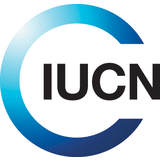
IUCN, International Union for Conservation of Nature, helps the world find pragmatic solutions to our most pressing environment and development challenges. It supports scientific research, manages field projects all over the world and brings governments, non-government organizations, United Nations agencies, companies and local communities together to develop and implement policy, laws and best practice.
IUCN is the world’s oldest and largest global environmental network - a democratic membership union with more than 1,000 government and NGO member organizations, and almost 11,000 volunteer scientists in more than 160 countries.
IUCN’s work is supported by more than 1,000 professional staff in 60 offices and hundreds of partners in public, NGO and private sectors around the world. The Union’s headquarters are located in Gland, near Geneva, Switzerland.
IUCN at a glance:
- Founded in 1948 as the world’s first global environmental organization
- Today the largest professional global conservation network
- A leading authority on the environment and sustainable development
- More than 1,000 member organizations in 140 countries including 200+ government and 800+ non-government organizations
- Almost 11,000 voluntary scientists and experts, grouped in six Commissions
- A neutral forum for governments, NGOs, scientists, business and local communities to find pragmatic solutions to conservation and development challenges
- Thousands of field projects and activities around the world
- Funded by governments, bilateral and multilateral agencies, foundations, member organizations and corporations
What does IUCN do?
- Knowledge: IUCN develops and supports cutting-edge conservation science, particularly on biodiversity and ecosystems and how they link to human wellbeing.
- Action: IUCN runs thousands of field projects around the world to better manage natural environments.
- Influence: IUCN supports governments, NGOs, international conventions, UN organizations, companies and communities to develop laws, policy and best-practice.
- Empowerment: IUCN helps implement laws, policy and best-practice by mobilizing organizations, providing resources and training, and monitoring results.
IUCN has offices in more than 45 countries and runs hundreds of projects around the world. We have member organizations in more than 160 countries and a network of 10,000 voluntary scientists and experts spanning the globe. Members within a country or region are often organized into National and Regional Committees to promote cooperation and help coordinate the Union's work.


